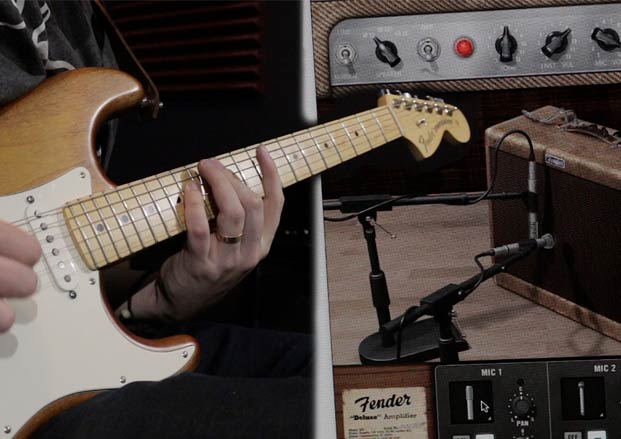Guitar Amp Simulators: Better Than Real Amps?

Amp purists and Dumble collectors beware: you won’t like what you’re about to read.
Since the dawn of digital guitar amp simulators, it’s become more and more difficult to tell the difference between guitars recorded through amps versus amp simulators. While there’s nothing like sitting in a room with a 4x12 moving the air around you, many musicians don’t have the luxury of a recording environment where they can turn up to 11 without getting evicted.
That alone should be enough to convince most people to give amp simulators a try, but I’ll give you the real reason that today, more than ever, this technology is threatening to make real amps a thing of the past.
The development of digital signal processing (DSP) is what allows for amp simulators to sound truly convincing. This tech is framed and approached in different ways by different companies, but the end goal is the same: match the impedance levels, gain stages and circuit behaviors of the most iconic guitar amps in the world, and do it with as little latency as possible.
This goal is hard to reach, obviously, which is why some people might have had bad experiences with amp sims. I can’t speak for everyone, but I think IK Multimedia and Universal Audio have managed to accomplish the feat—as have several other companies.
As a guitar player and content creator who records audio daily, I can’t afford to have low-quality sound or any roadblocks in the creative process, which is why I’m in a good position to judge guitar plug-ins. To me, what all the jargon in this article comes down to is one thing: dynamic response.
Intricacies and finger tone are what allow a guitar player to play with their own voice, and it’s also what makes playing guitar fun. In the video below, I’ll demonstrate how the plug-ins I use are able to cater to these needs we guitar players have, and offer legendary tones in the process. While I’ll never abandon my analog guitar amps and pedals, they just might be collecting a bit more dust going forward.
Get The Pick Newsletter
All the latest guitar news, interviews, lessons, reviews, deals and more, direct to your inbox!
Tyler Larson is the founder of the guitar-centric brand Music is Win. His insightful, uncomplicated guitar lessons and gear demonstrations along with entertaining, satirical content about life as a musician receive tens of millions of video views per month across social media. Tyler is also the creator of the extremely popular online guitar learning platform, Guitar Super System. A graduate of Berklee College of Music, Tyler has been teaching guitar for over a decade and operates a production studio in Nashville, TN.
Tyler Larson is the founder of the guitar-centric brand Music is Win. His insightful, uncomplicated guitar lessons and gear demonstrations along with entertaining, satirical content about life as a musician receive tens of millions of video views per month across social media. Tyler is also the creator of the extremely popular online guitar learning platform, Guitar Super System. A graduate of Berklee College of Music, Tyler has been teaching guitar for over a decade and operates a production studio in Nashville, TN.
“If you’re a young guitar player, that’s money well spent”: John Mayer names the pedal he thinks every young guitar player should consider buying
“An effortless way to customize your TONEX pedals for the stage”: IK Multimedia answers players’ prayers and gives its best-selling TONEX units their biggest upgrade to date – a dedicated editor









